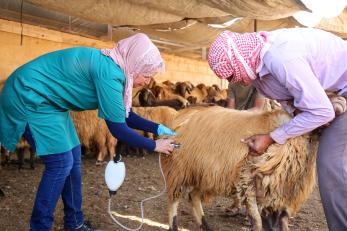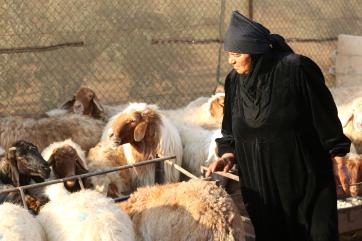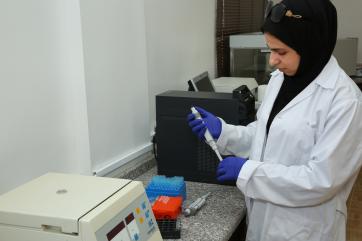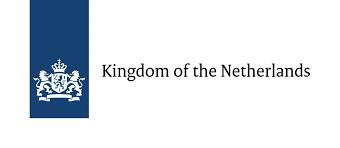Supporting Jordan’s dairy sector to overcome COVID-19 related challenges

Mercy Corps, in partnership with the International Rescue Committee (IRC) and Stichting Vluchteling (SV), is implementing the Access to Justice & Jobs (A2J) project; a four-year intervention, starting in December 2016, that seeks to address the root causes of conflict, instability and irregular migration. The project, funded by the Government of the Kingdom of the Netherlands Ministry of Foreign Affairs Addressing Root Causes Fund, aims to improve access to financial and legal assistance and increase income and employment opportunities in the Mafraq and Irbid governorates for Syrian refugees and vulnerable Jordanians, specifically targeting women and youth under 30. Activities focused on: (1) improving access worker’s rights including legal status and work permits; (2) increasing access to transferrable skills training opportunities, apprenticeships, and business start-up grants, and; (3) increasing the capacity of micro, small, and medium-sized businesses to expand and create employment opportunities.
In Mafraq, the dairy sector is a crucial, and often the primary source, of livelihood opportunities for vulnerable communities. In order to identify the challenges and opportunities present in the dairy value chain in the area, the project conducted a market systems assessment in 2017. This assessment was then used to design a wide range of interventions, utilizing a market systems development approach, to improve the efficiency and effectiveness of the dairy value chain and provide increased and improved income-generating opportunities for Mafraq most vulnerable communities.
Animal health services in the Mafraq governorate are mostly provided by the government and are often limited and inconsistent. The few private sector veterinary clinics that exist are located in city centres and operate more as pharmacies than comprehensive healthcare providers, lacking necessary equipment to meet the needs of herders. This lack of accessible and adequate services, coupled with the lack of awareness on the importance of preventive care and other issues, means herders generally only seek health services for their livestock in severe cases when urgent care is needed.
In response, A2J worked closely with private animal health clinics to raise awareness of the importance of preventive animal health services, to expand animal health service coverage and outreach, and to increase market linkages. A2J also supported the first sector-led vaccination campaign for the sheep and goat sector in Mafraq, vaccinating roughly 270,000 sheep and goats against foot-and-mouth (FMD) disease. As importantly, the campaign strengthened linkages between private sector animal health providers and herders.
In an attempt to slow the spread of COVID‑19, the Government of Jordan enacted a series of measures in the spring that severely restricted the movement and transport of people and goods disrupting markets and supply chain networks. These restrictions greatly affected the agricultural sector. To get a better understanding of the impact of the restrictions, A2J conducted a rapid assessment. The assessment highlighted the increased vulnerability of herders and some of the activities that would be delayed or canceled as a result of the restrictions, including the breeding of livestock. To mitigate the effects of this issue, A2J partnered with four veterinary clinics to design an activity that extended the breeding season for hereder. With support from A2J, clinics offered complimentary hormonal sponges and supplements to sheepherders to ensure a year’s worth of offspring were not lost. The activity supported 313 herders breed more than 5,500 sheep in Mafraq and strengthened the linkages between clinics and herders.


In Mafraq, small and medium-sized dairy processors are key to the value chain. However, they lack strong market linkages, adequate equipment and hygiene practices, and a diverse offering of products. In response, A2J designed activities that support processors to increase the sales and quality of existing products, introduce new products to the market, and improve connections between processors and small farms.
To date, A2J supported the development of 14 dairy SME through small grants, created 19 employment opportunities, conducted two technical training (43 participants) and reached 1,186 headers through the vaccination campaign and 313 herders through the breeding campaign.
Funded by the Dutch Ministry of Foreign Affairs
